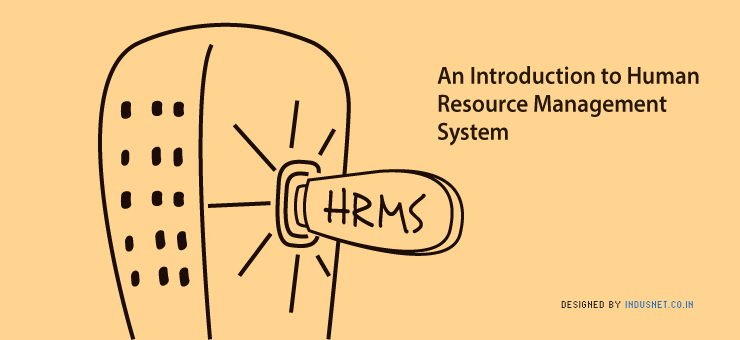back
Web Development
An Introduction to Human Resource Management System
As a small business owner, you might be handling your staff payrolls and leave management through manual register entry or MS Excel data entry or other similar data entry record maintenance offline platforms. But it becomes extremely difficult to follow these traditional methods for your business in a rapidly expanding market where the number of employees also grows to serve more customers.
Maintaining paper-based files for each employee requires a lot of labor and space. Besides this, it not only consumes a lot of time and money but decreases the productivity thereby reducing focus on core areas of your business. It is time to incorporate Human Resource Management System (HRMS) which can handle your personnel load efficiently with a flexible approach. Broadly, HRMS contains numerous benefits for business operation and functioning.
HRMS adds value to your business
- Strategic function – The management has an easy access to HR information which helps them to have a better insight into strategic issues and corporate decision making.
- Administrative function – HRMS streamlines the workflow in your organization and facilitates horizontal integration across different departments. Besides this, it also sends workflow alerts to employees to abide by the deadlines.
- Workforce alignment – HRMS helps you in the recruitment of key talent and align your workforce to your organizational objectives. It also helps in optimizing the number of employees performing a particular task.
- Learning and development – The more your employees learn, the more they can teach new recruits and colleagues. The self service modules help the employees to learn more about work practices responsible for their overall development and promotion within the organization.
- Business process automation – The common tasks in your HR department including performance evaluation of staff, travel reimbursements and bookings are easily taken care of with HRMS through its automated system.
Key features of HRMS
- Administer payment of salary – It ensures accurate and timely payment of all your employees. It can easily handle salary, allowances and over time rates for a complex grading structure existing in your organization through its well-defined formulae.
- Managing common administrative tasks – We often see that individual handling of time consuming tasks like travel reimbursement, change in personal information of employee, expense reporting etc adds a lot to the cost of labor. HRMS will assist you in handling such tasks and save your HR department a lot of time that can be focussed on strategic issues.
- Talent retention – HRMS helps you design employee retention strategies and programs so that you don’t lose your talented workers to your competitors. So if the attrition rate is high in your organization, HRMS will support you to come over this problem.
- Manage leave entitlement – HRMS accurately administers leave entitlement, leave encashment, number of leaves taken and the balance left without any hassle.
- Performance management – HRMS simplifies appraisal process by taking KRAs into account. It also keeps a track of punctuality and attendance of employees.
- Streamlines the recruitment process – HRMS tracks the applications received for a job posting, shortlisted candidates and interviews conducted till the appointment of an appropriate candidate.
- Effective communication – A transparent and easy flow of communication between HR department and employees facilitates a healthy relationship between the employee and the company. It makes sure that all their concerns are promptly addressed by the company. It also makes reporting much easier as we all agree that most of the companies follow a hierarchical protocol.
- Managing staffing requirements – HRMS helps you determine the type and number of employees required for a particular job. If though you are starting as a small business, appropriate fulfilment of staff requirements will make you grow.
- Medical allowances – If you offer medical allowances to your employees and their family members, HRMS will take care of it by tracking and maintaining medical entitlements.
- Employee training – Your employee needs constant training depending on the job profile he is in. HRMS manages the training requirements of your employees and monitors the cost required to train them.
- HR portal – HR portal gives the employees a secure access to their due salary and keep a track of salary history, leave entitlement, leave balance and a lot of other private information.
